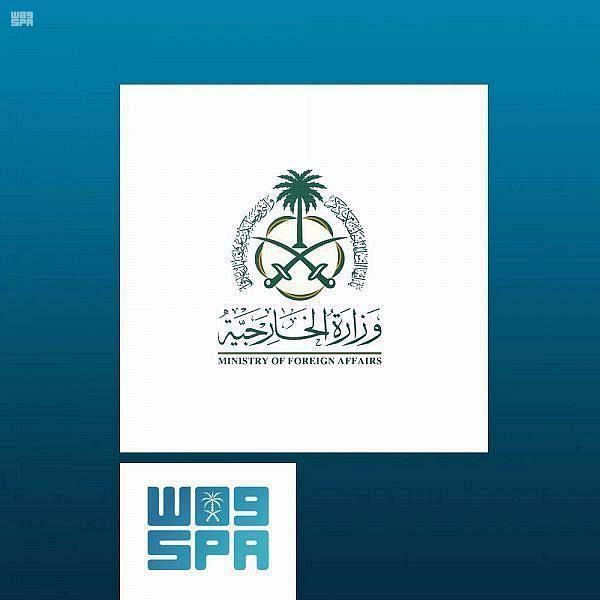
The two warring parties in south Sudan signed a preliminary power-sharing agreement on Wednesday to re-appoint rebel leader Riek Machar as vice president.
As part of its regional efforts to end the conflict in the country, Khartoum hosted a round of peace talks between both leaders Kiir and Machar. The two sides agreed to a permanent ceasefire and to the withdrawal of their troops from residential areas.
Earlier this month, the two parties agreed share power, but signing the agreement was delayed due to differences over the content of the agreement.
Sudanese Foreign Minister al-Dierdiry Ahmed said the power-sharing document has been signed and it addresses all pending issues during the transitional term.
Speaking at a signing ceremony at the Higher Academy for Strategic and Security Studies, Ahmed asserted: "Salva Kiir will continue as president of South Sudan and Riek Machar will be the first vice president.”
"There will be four other vice presidents shared between other political groups," the minister explained the details of the pact.
The agreement was signed by the Government of Southern Sudan, the main armed opposition led by Riek Machar, some members of the opposition political parties coalition and civil society organizations. Group of former political prisoners, led by former Sec-Gen of People’s Liberation Movement Pagan Amum and some of the opposition coalition group refrained from signing the agreement.
Once the peace deal is signed, the parties will be given three months to form a new-formatted government that will take over for another 36 months.
Ahmed said one issue that still needed to be sorted out was how to share power at the level of regions and counties.
"The negotiations on this will continue until we have an agreement," he said, adding that some opposition groups had refused to sign the deal but talks with them also continued.
Minister Ahmed explained that the preliminary deal stipulates the formation of a 35-member transitional government comprising 20 ministers from the current government, nine from Machars opposition coalition, while the rest will represent other opposition groups.
The parliament will consist of 550 lawmakers, including 330 from Kiir’s group, 123 from Machars faction, 50 from the opposition, 30 from other political groups, and 10 from former detainees.
Juba and opposition factions have both rejected the draft deal suggested last week on Independent Border Committee (IBC), comprised mostly of foreigners.
The new proposal identified 15 members of the commission would determine the fate of 32 states rejected by the opposition. The new document also proposed the appointment of five members of South Sudan’s government, two representatives of the Machar Movement and one for each of the alliance of opposition parties, group of former detainees and civil society organizations. The deal kept the representatives of the Troika countries as experts, with the Commission comprising five representatives of the African Union from Nigeria, Tanzania, Algeria, Chad and South Africa.
The proposal indicated that the Committee was limited to alternatives proposed by the parties and any other viable alternatives.
The decisional mechanism has been changed in the case the IBC members fail to reach a consensus. In the new draft, the decisions will be taken by "two-thirds of all its members that shall include at least seven (7) of its South Sudanese members", abandoning the rule of the simple majority in the previous draft.
The White House warned in a statement that the United States doubted that South Sudan President Salva Kiir and rebel leader Riek Machar had the leadership qualities needed to bring peace to the war-ravaged country since 2013.
The United States doubts whether South Sudan’s President Salva Kiir and rebel leader Riek Machar have the leadership qualities needed to deliver peace to the country at war since 2013, White House said on Sunday.
Peace talks last week in the South Sudanese capital Juba need to be more inclusive to succeed, the White House said, warning that it is “prepared to sanction additional persons engaged in corrupt activity and those who threaten the peace, security, or stability of South Sudan.”
“We are deeply concerned about the direction of the current peace process,” reiterated the WH, adding that: “a narrow agreement between elites will not solve the problems plaguing South Sudan,” said the statement.
“South Sudan’s political leaders... have not demonstrated the leadership required to bring genuine peace... We remain sceptical that they can oversee a peaceful and timely transition to democracy and good governance,” it said.
UK’s Foreign and Commonwealth Office (FCO) advised against all travel to South Sudan because of ongoing fight there. The Office warned that if any UK citizen is in Darfur against its advice, or in the Libyan desert area of Northern state, they should consider carefully whether to remain in the area, monitor local media and security channels for the latest updates, and follow instructions from security forces.
The British Embassy continues to monitor the situation.
FCO asked British national to “exercise vigilance and take care to avoid large crowds and demonstrations wherever possible.”
“If you’re abroad and you need emergency help from the UK government, contact the nearest British embassy, consulate or high commission,” FCO asserted, asking all nationals to contact embassy in Nairobi before heading to Juba.












